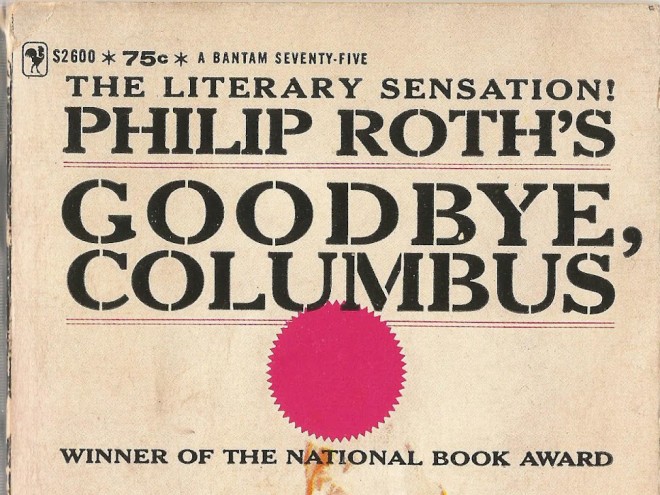Daniel Torday’s novella The Sensualist won the 2012 National Jewish Book Award in Outstanding Debut Fiction. His debut novel, The Last Flight of Poxl West, was published by St. Martin’s Press in 2015. He will be blogging here all week for Jewish Book Council’s Visiting Scribe series.
My years as an undergraduate were neatly bookended by reading the two most highly allusive books of modernism: week one at Kenyon College I read TS Eliot’s The Wasteland, and it was as if the top of my head was properly blown off. End of my final year there I wrote a senior thesis on the role of Shylock in James Joyce’s Ulysses, a system of literary allusion to Merchant of Venice that ran through every page of that book. Small surprise I found myself seeking out the Jews in Joyce.
When the time came to write my own first two books, though, I found my system of allusion was nowhere near so broad. I have not tried my hand at getting down just a bit of Sanskrit, as Joyce did in Finnegan’s Wake (I’ve heard that there are as many as 60 languages used to some degree of competence in that novel, though I’ll never try to find out myself — not smart enough). I don’t have a strong sense of the Greeks, as Eliot did.
What I had was the Torah.
And it’s not a bad resource, as five thousand years of its being read might already have suggested. In the moments when Abraham’s near-sacrifice of Isaac arose in mind, or Noah at sea searching for a mountaintop, no matter how distant, there was a sense that rather than reaching for Joyce or Eliot’s resources — or Joyce or Eliot, for that matter! — there was a deep and weighty model at hand. Some of that nearness-to-hand came to make me realize that the years of Hebrew school drudgery weren’t for naught. I’d internalized a lot of stories there. Some came from having recently been through a project of re-reading Genesis and Exodus.
Some, though, came from a markedly non-Jewish source: Marilynne Robinson’s wonderful novel, Housekeeping. I’ve long been a huge fan of the book, but in teaching it every year for the past four or five years in a novel-writing workshop I run, something deep and mysterious has arisen about novel-writing — and about the Pentateuch — for me. There’s a kind of near-mysticism in the Calvinist underpinnings of that novel that feel somehow non-denominational, and yet familiar from my own dabbling in reading about Kabbalah as a kid. Somewhere early in that novel its narrator, Ruth, says, “Everything that falls upon the eye is apparition, a sheet dropped over the world’s true workings.” I don’t know exactly how I square that sentence with my own sense of faith, but I do know it comports with my worldview.
But late in Housekeeping, Ruth moves into something that sounds more to my ear like Midrash. Chapter 10 starts this way:
Cain murdered Abel, and the blood cried out from the earth; the house fell on Job’s children, and a voice was induced or provoked into speaking from a whirlwind; and Rachel mourned for her children; and King David for Absalom. The force behind the movement of time is a mourning that will not be comforted… Cain killed Abel, and the blood cried out from the ground — a story so sad that even God took notice of it.
Every time I read that page my secular and Jewish educations seem to yoga their way right over each other — Wednesday nights at Hebrew school, Saturday mornings as a 19-year-old holed up hung-over in the library reading Faulkner, year after year of looking for the touchstones of my first novel all seem to bend until they touch top of head to heel of foot.
There are systems of allusion and there are systems of allusion; there are stories we’ve heard so long they are no longer stories, but instead some part of our DNA. I’m humbled to feel that in some way I’m able to share mine with those sitting in shul on Saturday morning, those sitting reading the Torah in the comfort of their own home, and those reading Housekeeping every time the headspace opens up to do so.
Read more about Daniel Torday here.
Related Content:
- The Complication of the Jewish Writer Question by Daniel Torday
- Essays: Writers on Other Writers and Books
- Kafka and the Parable by John Kessel
Daniel Torday is the author of The 12th Commandment, The Last Flight of Poxl West, and Boomer1. A two-time winner of the National Jewish Book Award for fiction and the Sami Rohr Choice Prize, Torday’s stories and essays have appeared in Tin House, The Paris Review, The Kenyon Review, and n+1, and have been honored by the Best American Short Stories and Best American Essays series. Torday is a Professor of Creative Writing at Bryn Mawr College.


